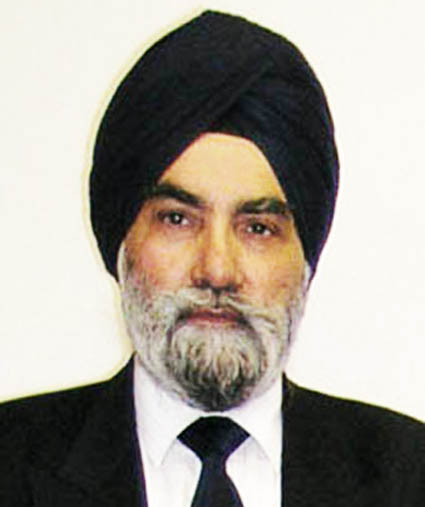Some Issues Affecting India, Panjab and Diaspora Sikhs in 2025

Parliamentary speeches led by PM Modi on 14 November 2024, on the 75th anniversary of the Indian Constitution and commentaries following the demise of ex-Indian Prime Minister, Dr Manmohan Singh on 26 December 2024, give us some broad pointers to the challenges and issues facing the Indian people and the Sikhs of Panjab. These will also impact on the diaspora Sikhs and the state of the global Panth. Revival of Sikh central institutions remains work-in-progress.
In his Parliamentary speech, PM Modi said that Nehru Followed His Own Constitution. That he wrote to Chief Ministers that if the Constitution becomes a hindrance, then we should bring changes to it. He confirmed that over six decades, the Constitution was amended 75 times! Indira Gandhi continued more daringly, in a similar mode.
Following on from what the Congress did to destroy the spirit of the Indian Constitution, the BJP-led Modi government continued the trend with even greater vigour. Amongst others, TMC MP, Mahua Moitra, accused the BJP-led government for bleeding the Constitution from a thousand cuts and that BJP had systematically eroded democracy during their tenure to date.
From the above we get clear pointers to the direction Indian administration is likely to take in 2025. It is clear that the Constitution of India today is no longer the same guardian of the rule of law and the rights of Indian diversity as originally intended in 1949.
Turning to late Dr Manmohan Singh, the Narasimha Rao-Manmohan Singh duo launched India into a new orbit of economic growth. On 24 July 1991, Dr Manmohan Singh laid out the blueprint for a new economic order which liberalised trade. Direct foreign investment from abroad would provide access to capital, technology, and markets. Simultaneously, the Ministry of Industry, under Prime Minister Narasimha Rao, announced the New Industrial Policy.
Dr Manmohan Singh, as the first Sikh Prime Minister, served for two terms between from 2004 to 2014. He was appointed by Sonia Gandhi. He was not a politician and, earlier in 1999, had lost the only election he stood for from South Delhi. His second term saw the corruption, endemic to the Indian system, bring his government down in 2014.
He had been asked to take over as Prime Minister by Sonia Gandhi who retained the positions of Congress President and as Chairperson of the then ruling United Progressive Alliance. Thus, the impression gained was that Dr Manmohan Singh, who described himself as an accidental prime minister, reported to Sonia Gandhi on all matters. There is absolutely no doubt that he raised the Sikh image globally.
However, he was unable to do much more than apologize for the 1984 Sikh genocide which lasted for 10 years. The Sikh turban case in France showed that, despite the constraints of his office, he could have done more. (I recall briefing him about UK Sikh issues also.) Despite coalition government, he had 10 years to re-instate separation of powers and constitutional safeguards.
Regarding India, Panjab and global Sikh affairs, we can expect more of the same: India is likely to keep missing opportunities to secure its geo-political objectives internal state-centre tensions are likely to increase minorities will keep feeling insecure and isolation of Panjab is likely to continue due to lack of agro-economic policies and Hindutva communal politics and, migrations of Panjabi youth will continue.
Diaspora Sikhs are unlikely to remain aloof while increasing their participation in the politics of the countries they live in.
Gurmukh Singh OBE
Principal Civil Servant retd, UK